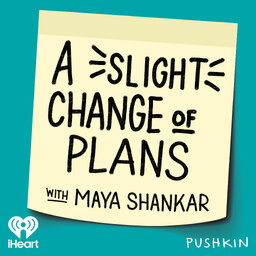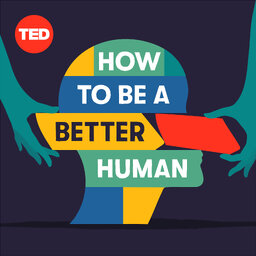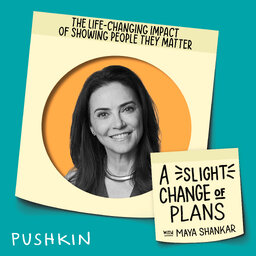“I Will Never Leave You”
Lucy Kalanithi is a doctor, a mom, and the widow of Dr. Paul Kalanithi, author of the bestselling memoir, “When Breath Becomes Air.” Lucy was at Paul's side through his final days, both at home and at the hospital. In this conversation, she reflects on how his death transformed her relationship to time, and how we make meaning in the world.
If you enjoyed this episode, we recommend this one from the archives: "Losing Dixie”
For a behind-the-scenes look at the show, follow @DrMayaShankar on Instagram.
In 1 playlist(s)
A Slight Change of Plans
What happens when life doesn’t go according to plan? In this award-winning podcast, cognitive scient…Social links
Follow podcast
Recent clips

The Invisible Weight of Olympic Gold
34:12

How to Accept the Messiness of Love
40:42

The Life-Changing Impact Of Showing People They Matter
39:33
 A Slight Change of Plans
A Slight Change of Plans